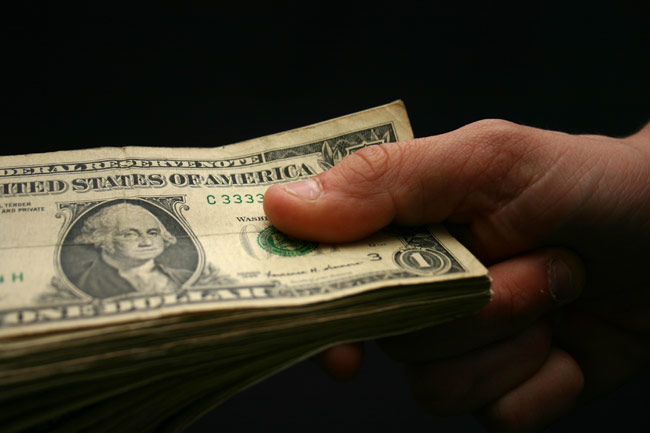What Causes Corporate Greed?

While harmful business practices revealed by the SEC lawsuit and recent Congressional hearings make the heads of Goldman Sachs seem infected with a particularly virulent strain of greed. But it might be only the scale of their payouts that distinguishes their alleged wrongdoing from how the rest of us behave. They were simply over-expressing a universal drive shared by all mankind, albeit in an environment that encouraged such behavior, experts say.
Greed occurs when the natural human impulse to collect and consume useful resources like food, material wealth or fame overwhelms the constraints that maintain the social ties in a group, said Andrew Lo, an MIT professor who researches the relationship between neuroscience and economics.
When a person acquires resources, chemicals are released in the brain that cause the sensation of pleasure. Greed is simply the addiction to that release, Lo told Life’s Little Mysteries.
“When we succeed, we feel good. When we gather resources, we feel good. And because we feel good, we want more,” Lo said.
However, just as peer pressure may lead teenagers to use drugs, the corporate culture of the last decade created an environment that might have persistently compelled CEOs to earn more and more money for themselves and their companies, Lo said. Like high school friends unwittingly passing a future alcoholic his first beer, colleagues and shareholders enabled pervasive corporate greed.
Executives viewed their personal millions and corporate profits as a way to measure their success relative to that of their peers, rather than as something to be spent, said Hersh Shefrin, professor of finance at Santa Clara University in California and author of “Beyond Greed and Fear: Understanding Behavioral Finance and the Psychology of Investing” (Oxford University Press, 1999). That decoupling of money from its common use blinded the more aggressive businessmen to the implications of their burgeoning greed, and could have helped to lead them to perpetrate the type of dishonest acts that addicts commit to feed their habits.
“Corporate greed is only different in terms of the stakes. To a lot of people, it seems different because they are already making so much money. But their goals aren't just monetary, it’s about social achievement,” Shefrin said. “When the only way to achieve those aspirations is to cross an ethical or legal line, you do something that is distinctly unsavory.”
Sign up for the Live Science daily newsletter now
Get the world’s most fascinating discoveries delivered straight to your inbox.
In the overheated financial environment of the last twenty years, the brain chemistry of reward loaded the gun of greed, and the systemic demands for increased profits pulled the trigger, in Shefrin’s view. The same combination of biology and environment fuels all greed, even if most people don’t have the potential to make hundreds of millions of dollars through their rapacity.









